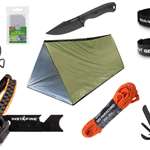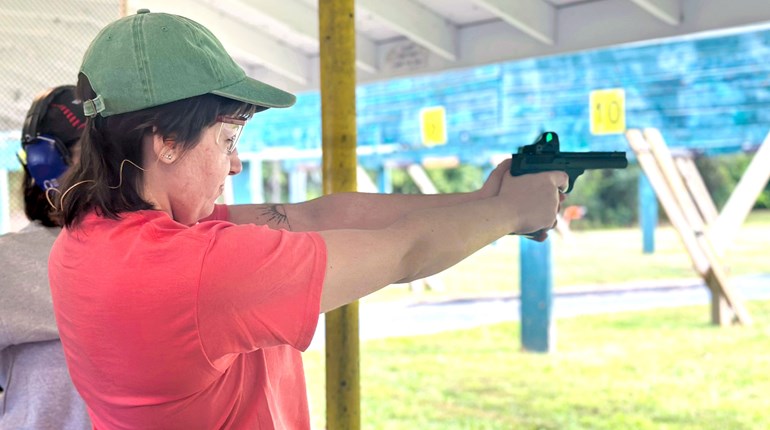
It’s funny the things we’re afraid of. In self-defense circles, we tend to create this image of the bad guy who jumps out of the bushes to assault you, so we can then talk about how to use your firearm (or other means) to defend yourself against this mysterious ambusher. But in real life, that’s not how assault tends to develop most of the time.
As a woman, you are statistically in far more danger from people you know than you are from total strangers on the street. In fact, only 10% of female murder victims are killed by a stranger, and somewhere between 17% and 30% of rape victims are raped by a stranger. Most of the time, the danger comes from someone you know. This muddies the self-defense waters a bit, because normalcy bias often kicks in. You assume you’re safe with this person because you know them, and you tend to ignore signals that would send up red flags from a stranger, because you want to give people you know the benefit of the doubt.
This particular area of normalcy bias is the reason I want you to learn about PC and let your guard be up anytime you find yourself in a situation where someone has Privacy and Control over you. This concept was spelled out by security expert Gavin DeBecker on a recent podcast.
Privacy is a problem for you, of course, because it sets up ideal conditions for assault with no witnesses and no one to intervene on your behalf. And control is a problem because it strips you of your power partially or completely. Control isn’t always physical, either—it often comes in the form of social pressure. Your boss has a certain level of control over you because filing a complaint against him can come with ramifications at work. Even if he’s polite and gracious, rejecting his request for a date makes things awkward at the office. Your uncle, even the creepy one, has a certain level of control over you psychologically because you were taught from childhood to respect your elders, and maybe you haven’t broken out of that mindset yet. Either way, someone else having control over you leaves you vulnerable.
DeBecker uses the example of a young female waitress closing up a restaurant for the night with her older, male shift manager. It’s late, the door is locked, and they’re alone—privacy. She couldn’t easily get help if she needed it. And he’s in authority over her—control.
Now, 99 times out of 100, there’s no problem in this scenario. They’ll just finish the work and go home, because the manager is a good dude who has no interest in hurting anyone. However, it’s a good example of a vulnerable situation where someone you know has privacy and control over you. “When someone has both privacy and control,” DeBecker says, “it doesn’t mean he’s a bad man. It doesn’t mean he’s going to hurt the teenage girl who works there, but it does mean she’s in a situation where she needs to pay attention to her vulnerability.
“Anytime you cede privacy and control to someone else, particularly women, who are more vulnerable to attack than men, it’s good to be aware of it,” he continues. “Just be aware that I don’t have advantages right now. I don’t have the advantage of being able to call somebody and expect to be heard, because we have privacy. And I don’t have the inclination to be strong and resistant because this is the guy I have to go to work with on Monday morning again. These are key things.”
Again, I don’t want you living in paranoia and being scared to death anytime you’re alone with a man, but I do want you to take note of situations where you’re in private with someone who has a level of control over you. Just recognizing that you’re vulnerable will help you be on higher alert so you can make any necessary adjustments (including leaving) if things start feeling off, and you’ll be better prepared to notice things going sideways in the first place. This is where, as DeBecker says, the gift of fear comes in. “Fear is a gift when it’s a signal in the presence of danger,” he says. In other words, when you’re in a vulnerable position and get that inkling of danger that quickly spirals into “I’ve got to get out of here NOW!,” listen to it. Trust your intuition that is telling you this particular PC situation isn’t safe.
—Jo Deering














































